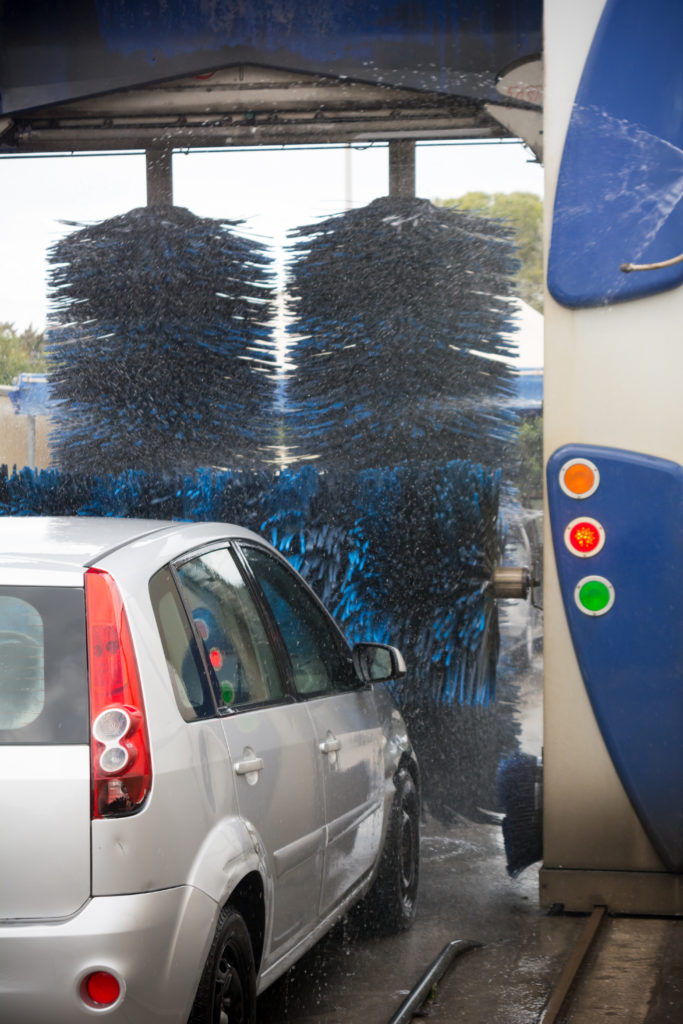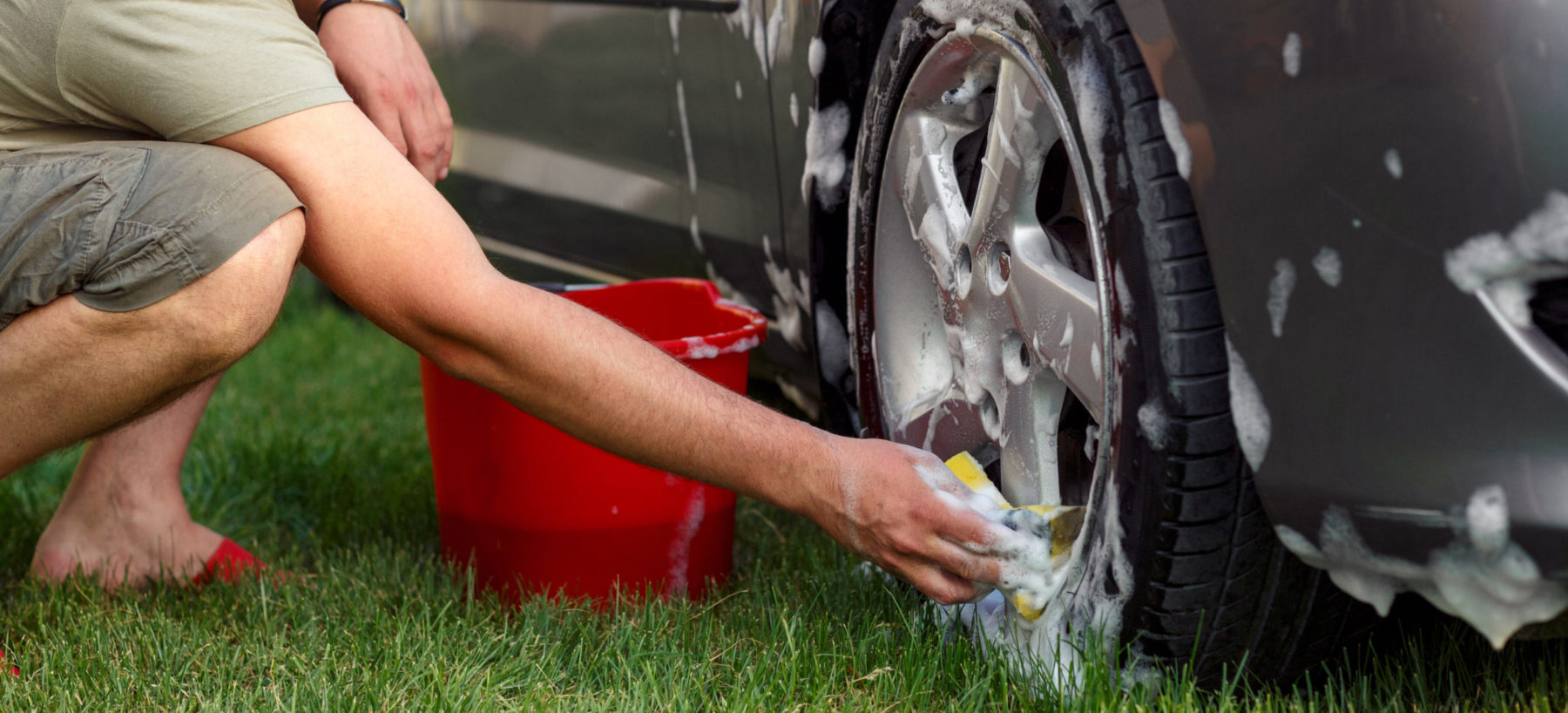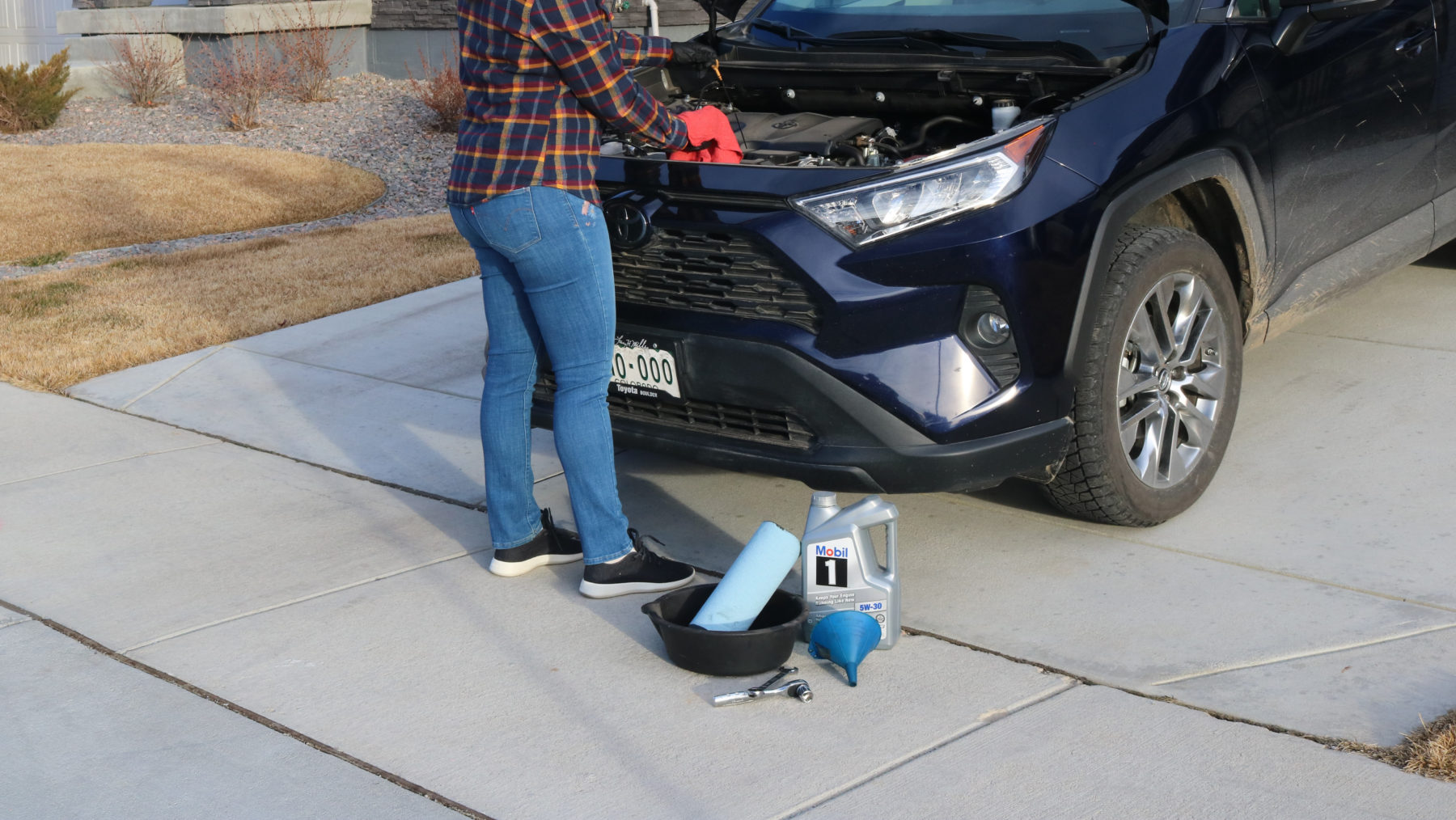
Those soapy suds are not clean!
When you wash your car in a driveway or street, the dirty water flows untreated into the nearest storm drain and then into local waterways. Auto fluid spills from leaks or regular car maintenance can also be carried into the stormwater system by rain, melting snow, or sprinkler runoff.
The Impact
The used water from washing your car can contain residue from exhaust fumes, gasoline, heavy metals from rust, and motor oils that build up on your car. The soap you use may also contain phosphates, which can cause excessive algae to grow in waterways. Auto fluids are toxic to aquatic life and the wildlife that drink from our streams.
Wash Your Car at a Car Wash
While it is not illegal to wash your car in your driveway, it is not a good practice. Commercial car washes direct used car wash water to treatment systems, and in many cases they recycle and reuse it. If you need to wash your car at home, washing it on the lawn is a better option than washing in the driveway because it allows the water to be absorbed into the ground.
- Wash your car at a commercial car wash.
- If you wash your car at home, do it on the lawn and use phosphate-free biodegradable soap or waterless cleaning products.
- If you are planning a car wash fundraiser, ask a local car wash if you can use one of their wash bays.

